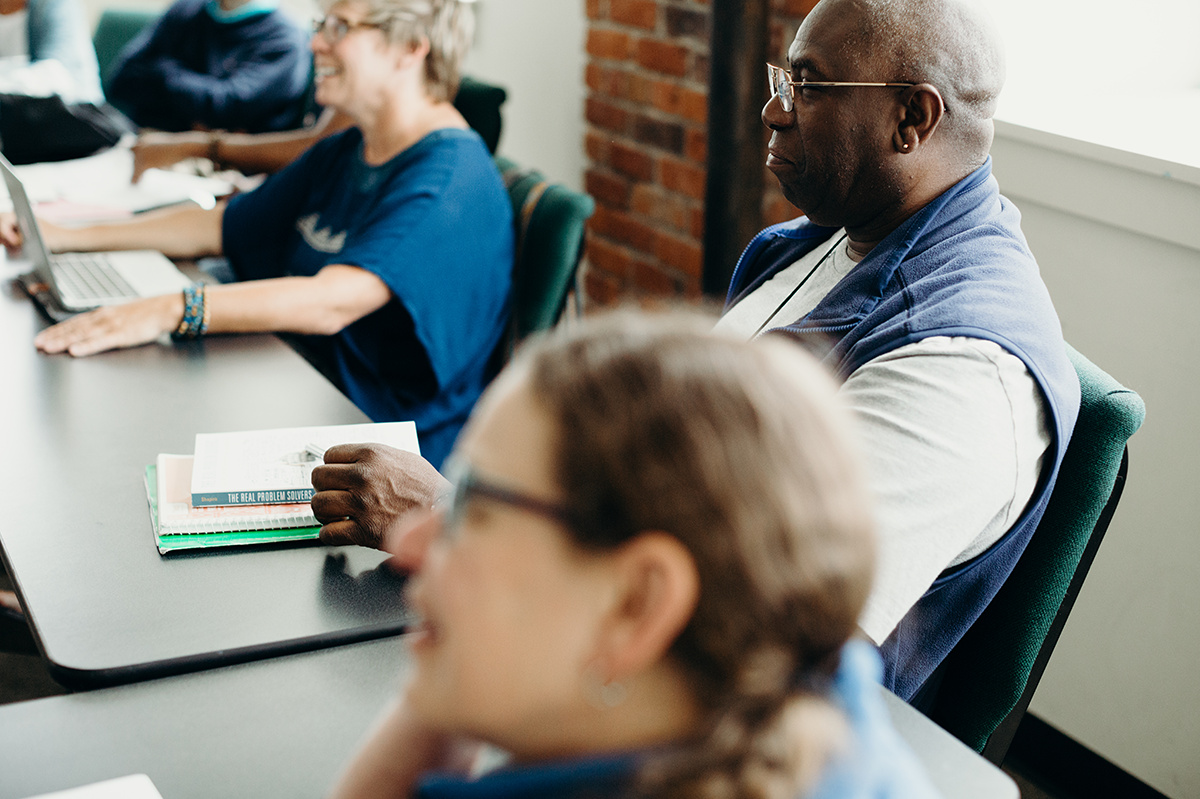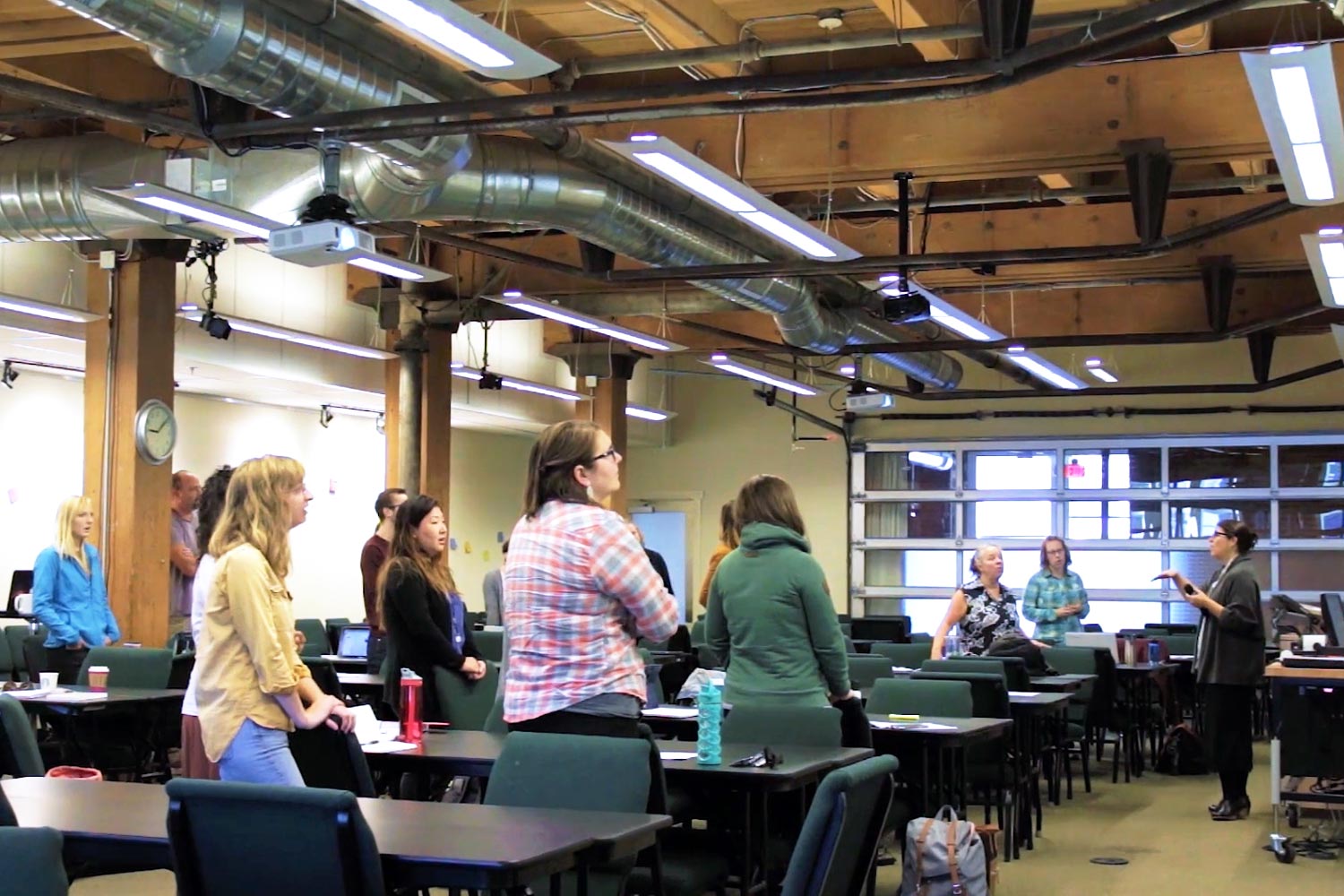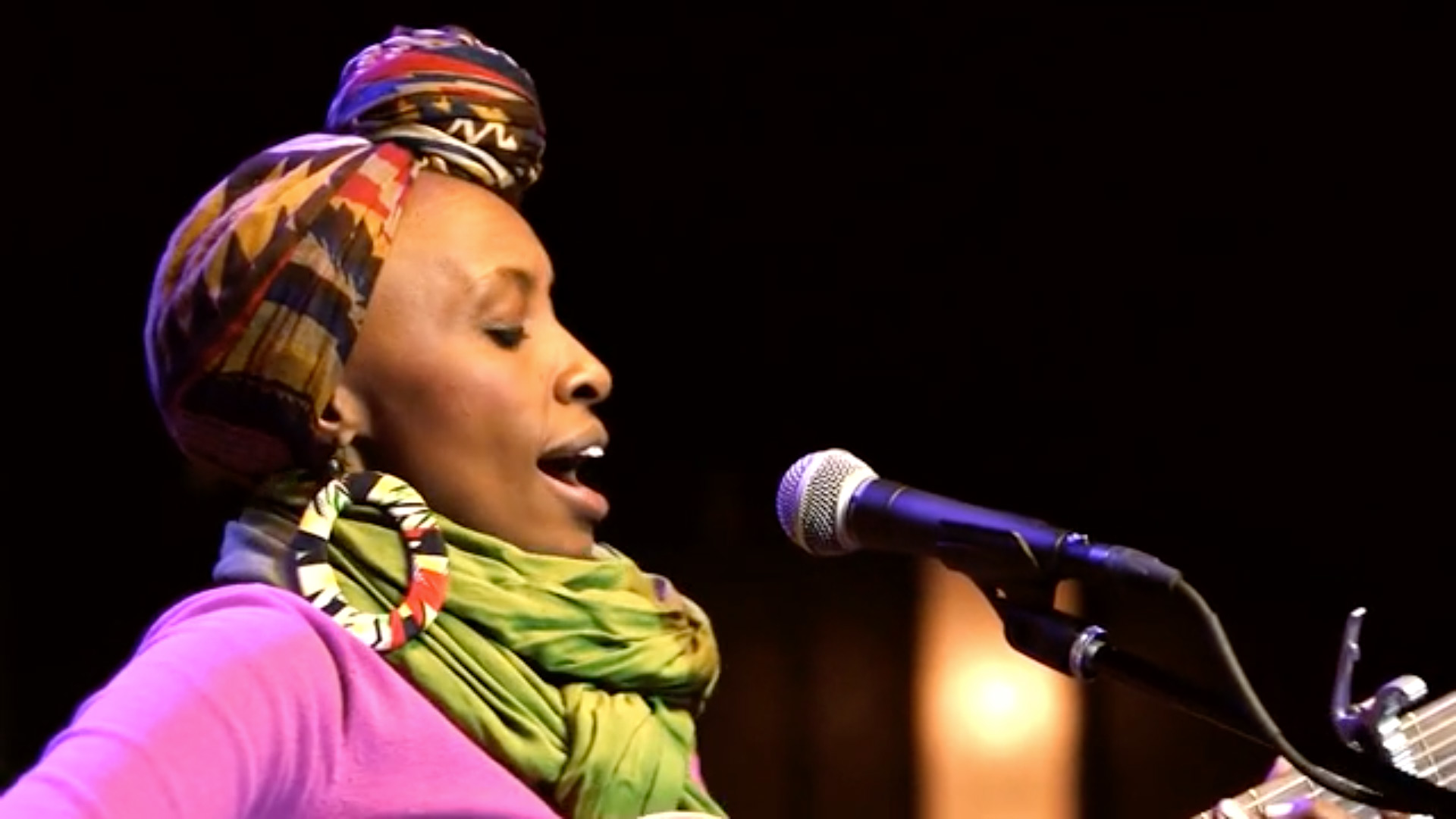
Master of Arts in Theology & Culture
Your Community, Your Context, Our Classroom
2 years to complete
39 credit hours of coursework
4 residency gatherings
Your vocational calling matters in service to God and neighbor. We’ve designed the low-residency Master of Arts in Theology & Culture (MATC) program for artists, activists, and ministry leaders.
This degree is for those who want to participate with God in God’s regenerative work through the arts, through community development, and through ministry. Our model cultivates a balance of integrated learning with colleagues across the three specializations as well as tailored reading, writing, coursework, and contextualized learning experiences specific to each. Classes are held weekly within a relational and engaging online learning environment. In addition to weekly coursework, students take part in four residency gatherings for on-campus formative learning experiences during the two-year program.
We invite you to a degree program that engages vocational and ministry contexts with robust theological thinking skills, contextual understandings of the Scriptures and the world, and a hopeful imagination for serving God and neighbor through transforming relationships.

Three Degree Specializations
The Arts
The specialization in the Arts is for artists who are called to explore and articulate the crucial problems in their communities through artistic expression and imagination. This specialization integrates arts practices and biblical pursuit of social justice so that makers, visual artists, musicians, performance artists, and those with creative energy, voice, and spirit may use their gifts to build communities of vision and hope.
The goal of this specialization is for artists to weave together faith and artistic practice so that they may be people who are attuned to the workings of God’s Spirit in the world. Students in this specialization will learn to be attentive to issues around societal justice, revealing and giving voice to that which is too often ignored or unseen. Students will also find new language and artistic tools to nurture resilience and sustain hope in the midst of sorrow and the experience of trauma.
Learn MoreCommunity Development
The specialization in Community Development prepares students to engage in the practices of community development and helps them to define theological and ethical foundations for the promotion of well-being in the communities they are called to love.
The Community Development specialization is for those who wish to train for vocations in collaborative development work in both global and North American contexts. Regardless of your location, you will gain the necessary skills to be a credible agent of healing and change in the place that you serve.
Learn MoreMinistry
With a broad understanding of the church as the people of God, this specialization prepares students for new expressions of missional, formational, and worshiping communities that transform. The Ministry specialization is designed to guide you into responsive, contextual, and courageous approaches to ministry at a time when faith practices are being redefined and expressions of church are being reimagined for the future.
This educational experience is profoundly formative, preparing and daring leaders to attend to God’s active presence in their own lives and the work of God in their local communities and contexts.
Learn MoreLow-Residency Modality
Each program is offered in a low-residency format: students may remain rooted in their local contexts and engage the majority of their studies through online courses, while also engaging in four residency gatherings across their two years of study.
“There is something in this moment in American culture where we are riled up enough to take to the streets but we don't understand enough to have good dialogue. People in the MA in Theology & Culture program are invited to think well about what culture actually is and how to understand and engage theologically.”
Chelle Stearns, PhD
Associate Professor of Theology Meet Our Core Faculty
Why enroll in our Master of Arts in Theology & Culture Degrees
Contextualized Learning | Apprenticeship & Integrative Portfolio
Your community is our classroom. The MATC degree is designed with praxis at its core. You will have the opportunity to apply your coursework to your chosen vocational goals and contexts throughout your program. The first year of the degree introduces our unique interdisciplinary framework for embodied learning, rooted in culture, while also engaging the biblical text and the discipline of theology. The second year of the degree involves an apprenticeship and a capstone integrative project to deepen your learning in a particular context.
The Apprenticeship is a contextual learning experience that asks students to attend to the stories of their organization and of the peoples and places they serve. You will participate in the life of the organization with particular learning goals. What questions is this organization asking? What strengths does this organization offer, and what challenges does this organization experience? Your engagement with the apprenticeship will provide a contextual foundation to ground the Integrative Portfolio. As a student, you will either identify an organization with which to work or use your current position as your apprenticeship site. Sites can be ministries, human services or artistic organizations, churches, or other organizations where you can serve while fine-tuning your creative, entrepreneurial, and service skills in order to deepen your learning and vocational exploration.
The capstone Integrative Portfolio emerges from the Apprenticeship, integrates your training and coursework, and allows you the opportunity to engage in an in-depth contextual project that you design. The work of both the Apprenticeship and the Integrative Portfolio is embedded into the degree coursework. This capstone artifact and experience gives you a way to integrate your unique passion and calling with classroom theory and praxis, in the service of creating a missional, forward looking, vocational articulation, preparing you to serve God and neighbor in your post-graduate contexts.
Integrative Community Learning | Cohort Model
In your MATC program, you will have the opportunity to learn alongside community leaders, faith leaders, artists, and activists. By engaging in coursework with your colleagues, you will have the chance to not only learn from one another but also to use tailored projects and assignments to grow your personal vocational skills and theory.
We believe that learning in community is essential. This program is designed to help you build and sustain lifelong learning relationships and develop the skills of a compassionate, engaged, fully-present, self-reflective learning community member. The degree specializations invite you to participate with curiosity in an interdisciplinary learning context and remain connected to your co-learning peers and local learning partners as lifelong learning companions.
Stay rooted where you are. Be in a community of folks of like mind, who are also working in their communities. The low-residency format allows you to develop rich relationships with your fellow students while you go through your program.
Accessible & Affordable Learning | Low-Residency Format
The Master of Arts in Theology & Culture degree is offered in a low-residency format: students may remain rooted in their local contexts and engage the majority of their studies through online courses, while also engaging in four residency gatherings across their two years of study.
Residencies are designed as thresholds along the low-residency educational journey that sustain and deepen learning through intensive, immersive community experiences. They enable you to maintain your links to your community and to bring your context into your learning experience.
The low-residency format also makes your degree program more affordable. For those who live outside of commuting distance from Seattle, it saves the cost of relocating. Depending on your current employment, it may also allow you to remain in your job. In both cases, the low-residency format reduces the cost of your education by limiting the expenses in addition to tuition that are commonly incurred by graduate students.
Our Paying for School page shows you more information about tuition and other costs of our education. For more information regarding the residency gatherings, visit our Low-Residency model webpage.
“When Naomi Wachira entered The Seattle School she had many questions about her faith. What she found was a community that welcomed her questions and encouraged her to explore them more deeply through her greatest passion: music.”
Naomi Wachira Explore MATC Voices
Ready for the next step?
Connect with us! Request more information or apply today, and we’ll send you everything you need to know in order to begin your journey.


